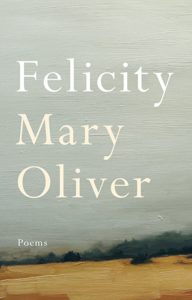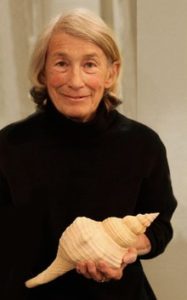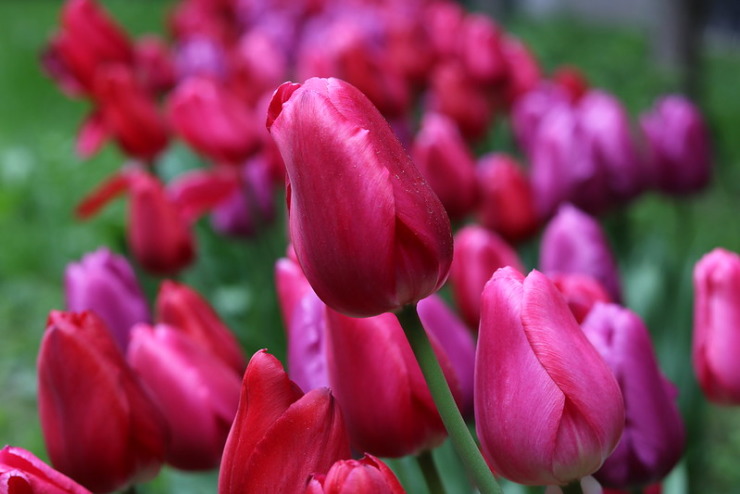Mary Oliver wrote poems about love, too
Sometimes, you find love where you least expect it.
Mary Oliver (1935-2019) is not usually considered a love poet, at least in the traditional understanding of love poetry. We might first think of Shakespeare and his sonnets, or Elizabeth Barrett Browning, or Pablo Neruda, or Edna St. Vincent Millay. One of the best-known poems by William Butler Yeats is the love poem “When You Are Old.” And there are the Elizabethan poets, and the Romantics. But Mary Oliver?
As it turns out, yes, Mary Oliver.
In Felicity: Poems, published in 2015, Oliver included several love poems. They’re not what we might call “traditional” love poems; in some of them, she backs into the love theme. A few initially don’t seem like love poems at all, until you read them a few times. She also uses a favorite and more familiar theme—nature—to frame many of her love poems.
I was surprised, until I remembered that one of her significant poetic influences was St. Vincent Millay. Oliver even lived for a time in Millay’s home, helping her sister organize her papers after the poet’s death.
Felicity was one of her last two collections before her death (the final volume was Selected Poems). It’s a slender volume of 38 poems, of which almost half—some 18—are gathered under the heading of “Love.” The other 20 poems are familiar Oliver subjects—nature, walks, trees, flowers, birds, and similar subjects. But the 18 love poems steal the stage; this poet who was famously reticent and virtually silent about her own love life let something come into view here that readers had rarely seen before.
Late Spring

to change, its fevers mounting,
its leaves unfolding.
And the mockingbirds find
ample reason and breath to fashion
new songs. They do. You can
count on it.
As for lovers, they are discovering
new ways to love. Listen, their windows are open.
You can hear them laughing.
Without spring who knows what would happen.
A lot of nothing, I suppose.
The leaves are all in motion now
the way a young boy rows and rows
in his wooden boat, just to get anywhere.
Late, late, but lovely and lovelier.
And the two of us together—a part of it.

Mary Oliver
Born and raised in Ohio, Oliver attended both Ohio State University and Vassar College, but received degrees from neither. After her work at the St. Vincent Millay home, she moved to Provincetown, Massachusetts. She received the Pulitzer Prize for Poetry for American Primitive (1983). The recipient of numerous awards, fellowships, and other recognitions, Oliver published more than 30 collections of poetry, two collections of essays, and handbooks on writing and reading poetry. She died of cancer in 2019 at the age of 83.
The love poems of Felicity are a good reminder for this Valentine’s Day. Love can catch you unawares, and you can find it where you might least expect it. Something like that happened in Mary Oliver’s own life, and she eventually wrote poems about it.
Not Anyone Who Says
Not anyone who says, “I’m going to be
careful and smart in matters of love,”
who says, “I’m going to choose slowly,”
but only those lovers who didn’t choose at all
but were, as it were, chosen
by something invisible
and powerful and uncontrollable
and beautiful and possibly even
unsuitable—
only those know what I’m talking about
in this talking about love.
Related:
Nature and “Dream Work”: We Had Mary Oliver for a Time
Photo by Ulrica Loeb, Creative Commons, via Flickr. Post by Glynn Young.
How to Read a Poem uses images like the mouse, the hive, the switch (from the Billy Collins poem)—to guide readers into new ways of understanding poems. Anthology included.
“I require all our incoming poetry students—in the MFA I direct—to buy and read this book.”
—Jeanetta Calhoun Mish
- Longfellow’s “Paul Revere’s Ride”: Creating a National Legend - April 17, 2025
- Poets and Poems: Katie Kalisz and “Flu Season” - April 15, 2025
- Poets and Poems: Michelle Ortega and “When You Ask Me, Why Paris?” - April 10, 2025


Bethany Rohde says
Thank you for this post and for pointing these poems out to us, Glynn. I’m grateful for your ongoing help in bringing collections and poets to our community’s attention with succinctness and insight.
I am enjoying how Mary Oliver gives us an example of “new ways to love” in their laughter. The surprise that makes us gush like that is a joy, but not one I had associated with “new ways to love.” And I love that.
Glynn says
Bethany, thanks for the comment!